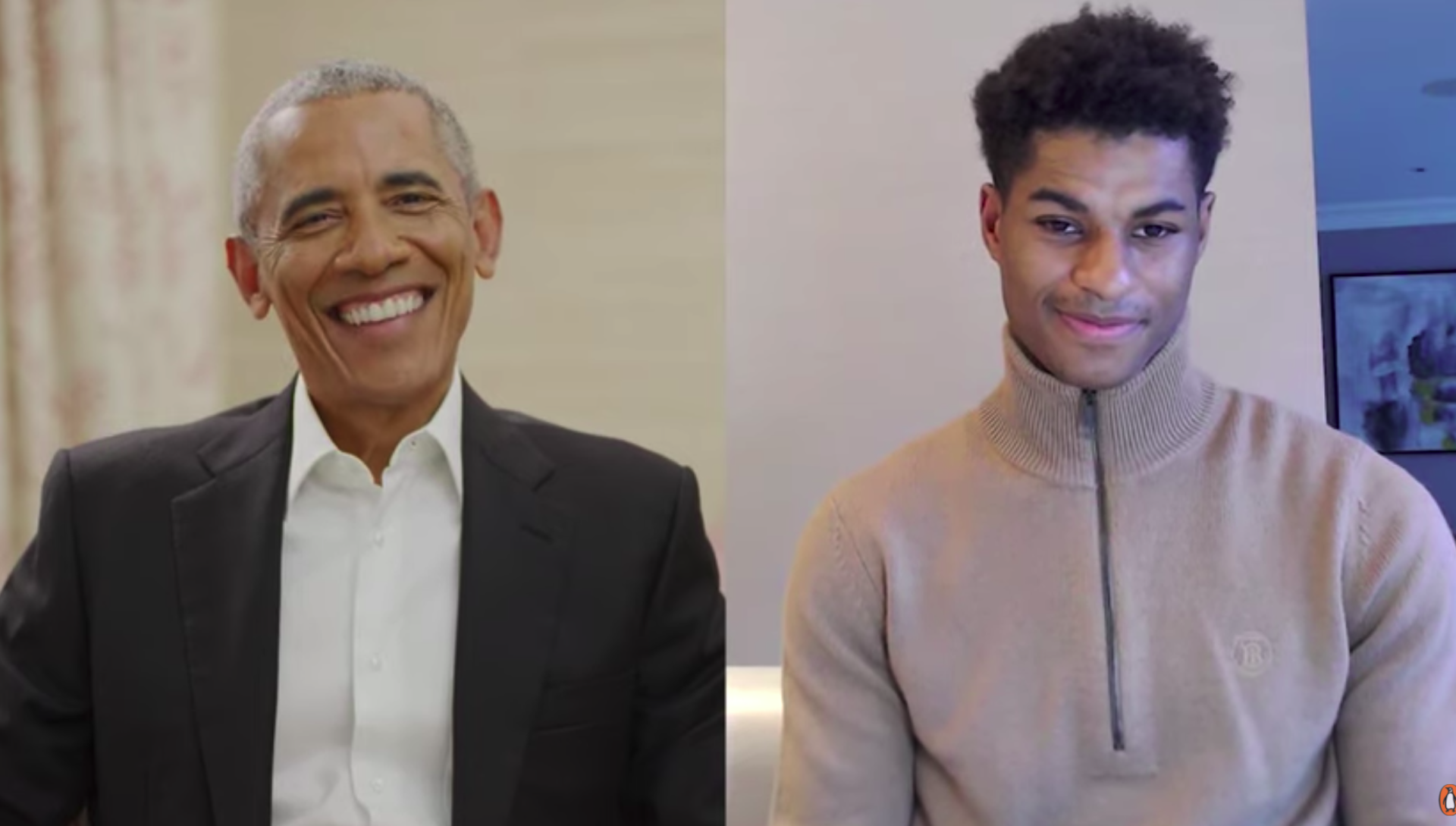2. Look for the grassroots activists
Barack Obama pressed the importance of grassroots projects and the need for new and underrepresented voices in politics, stressing: “Usually change happens from the bottom up and not from the top down. Usually the politicians and the government respond to the voices and demands of the population.”
The former President of the United States underlined the need to understand other people’s struggles, saying “it’s good for your soul to be out in the community and interact with people that aren’t just your usual mates and family, to hear new voices.”
Obama emphasized that “even the highest reaches of power… it’s still just humans”.
He continued, saying that often young and underprivileged people feel ostracised and “like we don’t belong at the table making those decisions but the thing is, the people at the table: they aren’t any smarter than you”. Obama believes his and Rashford’s journeys prove that people considered outsiders do belong in these decision-making spaces.
3. Rashford and Obama had more in common than they first thought
The pair also considered their similarities, such as being raised by single mothers and their involvement in community projects.
Rashford reflected on the call, saying: “It wasn’t long before I realised just how aligned our experiences as children were in shaping the men you see today – adversity, obstacles and all. I genuinely enjoyed every minute of it.”
4. Rashford puts a lot of his success down to reading
Marcus used books to cope with his level of fame. He told moderator June Sarpong that, although he discovered a passion for reading later in life at 17, “books allowed me to do it my own way”.
He wanted other underprivileged kids to access reading and find their voice earlier than he did, saying “they don’t understand how powerful their opinions are. So a lot of the time, I’m just there to listen and I always try to make changes and do things my community wants.”
5. Act ethically, always
The former president also had some words of advice for the media: “There is journalism that is designed to titillate, to make people passive and ignorant, or there is a journalism that focuses people on issues that are important and gives them information and empowers them.”
He pressed the importance of acting ethically in all endeavours, specifying how businesses approach issues such as workers rights and the environment, and how journalists inform the public.









